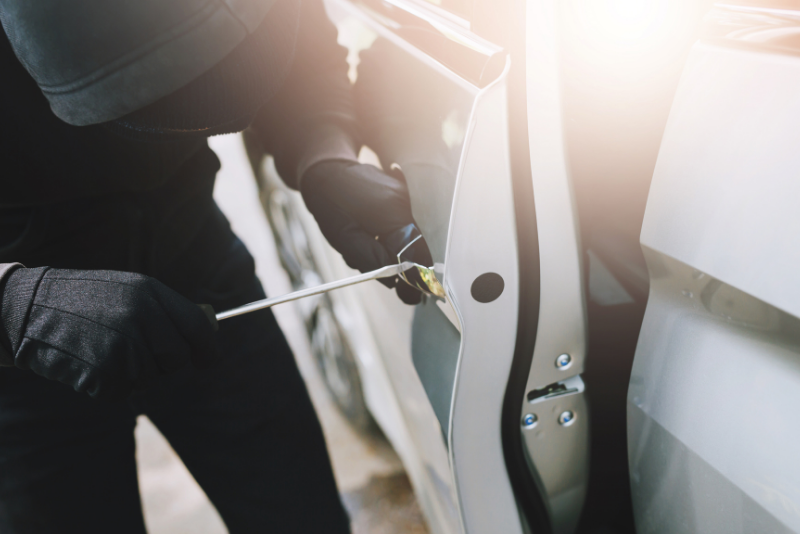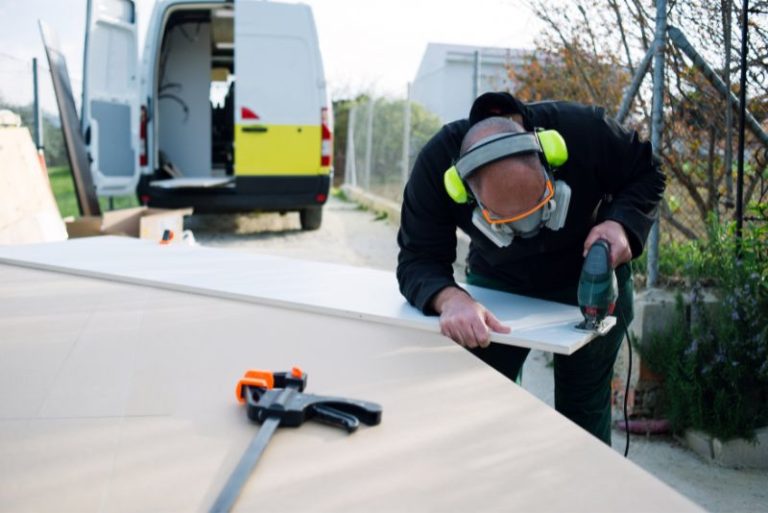With the economic backdrop including a cost-of-living crisis, never-ending Brexit red tape, and skills shortages, small businesses are facing greater challenges than ever. Add to this the worrying rise in tool theft being seen across the UK, and it seems like the pressures that tradespeople are facing is growing.
We hope that you’ve emerged from the winter months without having any tools stolen – the fewer daylight hours often see a spike in tool thefts during winter. But what can we expect over the rest of this year? We explore the current landscape to help keep you and your tools safe and sound.
There are new reports and headlines on this issue all the time, and frustratingly we are still waiting for the Government to approve a new Bill aimed at stamping out equipment theft and resale. On the bright side, the proposed legislation has had a positive reaction from MPs, and the Bill is proceeding through the next necessary stages before it can come into effect.
But while we wait for these tougher laws to be approved, tradespeople are still feeling the financial and emotional strain of this crime on a regular basis. In fact, new data reveals that tools were stolen every 15 minutes in 2022, across England, Wales and Northern Ireland.
A total of 35,098 incidents of tool theft was reported to the police last year, 13% more than 2021. More than half (55%) of these thefts took place from a vehicle, equalling 19,147 cases, which is up by 10% of the previous year.
Of those surveyed, the average value of stolen tools equalled £3,425, which makes the combined total value of tools stolen from vehicles a shocking £66m in 2022. London continues to be a hotspot for this type of crime, but it’s an issue across the country.
Which tools are the most stolen?
In 2022, a whopping 78% of tradespeople were victims of tool theft. Out of all the professions, roofers were the hardest hit group, followed by electricians, plumbers, and carpenters.
Between January 2021 and October 2022:
- 22,005 powered hand tools were stolen.
- 5,641 standard tools were stolen.
- 1,683 mechanical hand tools were stolen.
- 1,137 garden tools and garden equipment were stolen.
- 414 building materials, including scaffolding, were stolen.
- And 295 ladders were stolen.
That makes powered hand tools four times more likely to be stolen than any other tool. What’s more, 38.5% of these tools were stolen from a van.
The true cost of tool theft
While the financial figures laid out above paint a shocking picture, they are not the only impact of this crime. We know that for tradespeople, your tools and van are your livelihood – enabling you to complete jobs and travel to customers.
Losing them, through theft or vandalism, can not only result in a loss of earnings and having to pay for repairs and/or replacements, but also significant emotional stress. To make matters worse, despite the high numbers of theft, on average only 3 cases in every 1,000 results in a charge against the suspect.

Why are tools stolen in the first place?
According to the ‘On The Tools 2022’ report, 70% of consumers are aware that the average tradie has had their tools stolen over the last year. However, 23% of consumers purchased used tools without making any checks.
One of the reasons for the used tool trade booming is believed to be the cost-of-living crisis, which has seen the cost of materials rise, and ability to afford replacement tools reduce making the second-hand market more affordable and tempting, even by the most well-meaning of buyers who are simply looking to keep working. Stolen tools may be sold to pawn shops, resold online on sites such as eBay, Facebook Marketplace, Gumtree without any legal requirement to list a serial number.
While the majority of tools are stolen from vans, tools are also often stolen to be used in other crimes, such as burglaries or break-ins. Additionally, tools may be stolen to be used for illegal activities, such as metal theft or drug production. Sometimes they are stolen so that the thief can simply use them themselves.
But it’s also worth flagging that tools are stolen from gardens, sheds, and construction sites. While many manufacturers and the police recommend that tool owners take appropriate security measures such as using secure van locks and immobilisers, installing alarm systems, and using visible deterrents such as CCTV cameras, tool theft continues to rise with the thieves outsmarting the advice.
While the likelihood of recovering stolen tools remains low, it is recommended that tools are marked with a unique identifier and that tool owners keep an inventory – so if they are stolen, victims can easily and quickly report exactly what is missing to their insurer.
With a conviction rate as low as 0.3%, it’s critical for the trade to take steps to make it as hard for the thief as possible.
How to protect your tools from potential thieves
There are lots of things you can do to protect your van and your tools:
- Avoid storing tools in your van – remove them when you’re on a job or overnight
- Invest in a quality lockable tool chest or box
- Store your tools in a securely locked garage
- Install motion-sensor lighting in your garage
- Consider an alarm system for your garage
- Mark your tools – either with a DNA marking kit or by scratching your name/postcode into the body of the tools
- Use a GPS tracking device to keep track of your tools – or even Air Tags, which have much better range than other Bluetooth tracking devices
- Be aware of your surroundings and suspicious activity when working in public – always lock your van whenever you leave it, even if it’s just for a minute
- If possible, park your van where access to the doors is limited to deter thieves
- Never leave your tools unattended in a public place
- Register your tools on an online database – police can trace owners of lost/stolen property via Immobilise.com, which is free to use, and you can also report if your tools go missing
- If you do store your tools in your van, take a look at some of the latest security tech available from Van Guard
Do I need tool insurance?
Another critical factor in protecting your tools is ensuring that you have tool insurance. It is worth checking your van insurance policy wording to understand exactly what is, and isn’t, covered. You may find that you are not covered, and need to consider purchasing separate tool cover if you haven’t already.
Speak to your broker about the insurers on the market, to make sure that your insurer is proactive in replenishing tools quickly so that you don’t need to lose more sleep, or income while you wait.
Whether you haven’t yet opted for tool insurance, or purchased new tools you need to include in existing cover, or even upgraded your van, get in touch. As we are brokers. we are also here to support you in the event of a claim. Find out more about how we can help by calling your local business branch.
We are always here to help advise you on all aspects of van insurance and tool insurance, with 60 years’ experience under our belt to point you in the right direction.
Sources: Insurance Times, Builders Talk Group, Parliament UK, Simply Business

